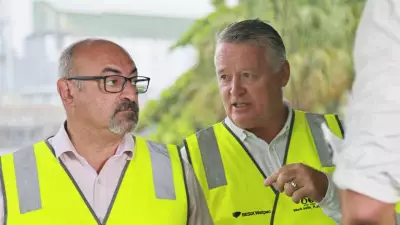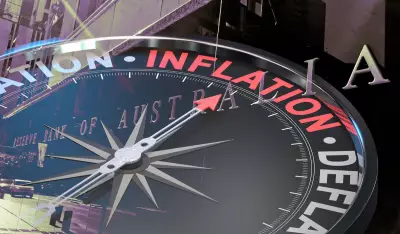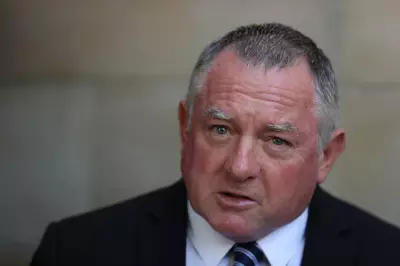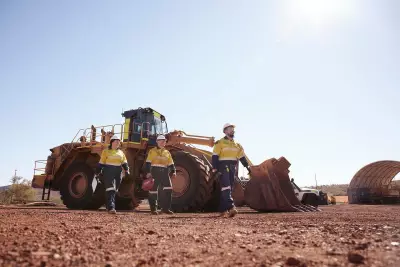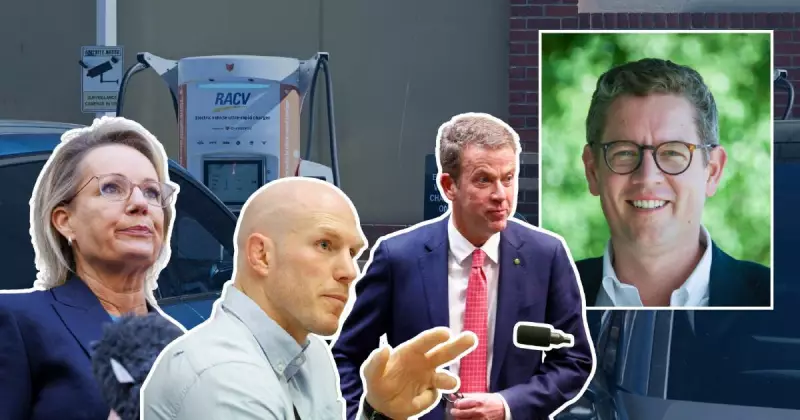
The Coalition has announced plans to scrap a popular electric vehicle subsidy that has helped thousands of Canberrans transition to cleaner transport, potentially driving up living costs for those who embraced the tax incentive.
What the Coalition's Policy Change Means
Opposition Leader Sussan Ley confirmed the policy shift after Sunday's joint party room meeting, declaring the Liberals would eliminate Labor's fringe benefits tax exemption for electric vehicles if elected. The move forms part of a broader energy policy that also includes abandoning Australia's net zero by 2050 emissions reduction target.
"Our policy is clear. It removes a lot of subsidies, artificial structures, regulation that's in the wrong place and doing the wrong thing," Ms Ley stated during the policy unveiling.
Canberra's Strong EV Uptake Under Threat
Data from the National Automotive Leasing and Salary Packaging Association reveals the significant impact the subsidy has had in the ACT. Since its introduction in 2022, Canberrans have purchased approximately 7000 battery electric vehicles and 1600 plug-in hybrids using the incentive.
This represents more than half of all EVs registered in the territory, with suburbs including Holt and Amaroo ranking among Australia's top ten postcodes accessing the initiative.
The FBT exemption scheme allows individuals to purchase EVs priced under $91,387 through salary-sacrificed novated leases without fringe benefits tax applying, even for purely personal use vehicles.
Divided Opinions on Subsidy's Future
Rohan Martin, chief executive of NALSPA, strongly criticised the proposed policy change, calling it "completely out of step with the national interest."
"It would drive up the cost of living for the many Canberrans who have transitioned to electric vehicles to save on their transport costs," Mr Martin warned.
ACT Independent Senator David Pocock echoed these concerns, noting that the ACT leads the nation in EV uptake with more than one in four new cars now electric.
"Transport emissions are a large part of the ACT's emissions, so policy that encourages the uptake of EVs is critical for our climate goals and health," Senator Pocock said.
However, Canberra Liberals Senate candidate Nick Tyrrell, despite being an EV driver himself, supported scrapping the exemption.
"This is another example of where Labor's central-planning type approach is just not working, and is not only driving up costs but having negligible effect on emissions," Mr Tyrrell argued.
He described the policy as "extraordinarily inequitable" with most beneficiaries being high-income earners, adding: "If Labor doesn't axe this subsidy themselves before the next election, I'll eat my hat."
Financial Impact and Market Consequences
The cost of the subsidy has significantly exceeded initial Treasury forecasts. While originally projected to cost $205 million in foregone revenue through to 2025-26, analysis by the Electric Vehicle Council and NALSPA suggests the actual cost will reach $2.6 billion.
Currently, about 7000 Australians purchase an electric vehicle each month, with half of them accessing the FBT exemption through novated leases.
Australian Electric Vehicle Association President Chris Jones warned that removing the exemption overnight would represent "a very abrupt change." He described the subsidy as "really the only demand-side initiative the Commonwealth government has right now" and noted it was "clearly working" at driving EV uptake.
Opposition energy spokesperson Dan Tehan defended the policy shift, arguing that almost half of people accessing the subsidy were high-income earners and that cost blowouts meant "it's unfair, it's wasteful."
When questioned about Labor's position on the subsidy, a spokesperson for Treasurer Jim Chalmers stated: "Our tax policies haven't changed," leaving the door open for potential future adjustments.



